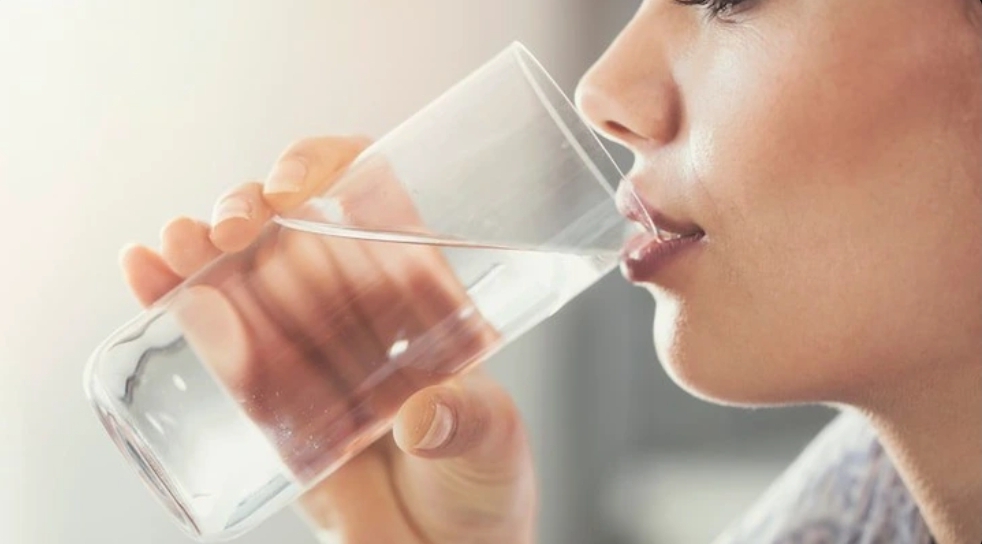How to protect your liver naturally: Eat healthy, move more, avoid smoking

Health benefits of drinking water: Drinking enough water helps the liver flush out waste and absorb nutrients efficiently. Spread your water intake throughout the day rather than drinking large amounts at once (Image: Canva)
Your liver is one of the most important organs in the body. It filters toxins, helps digest food, and supports health. Also, it is exposed to everything you eat, drink, and absorb. Poor diet, lack of exercise, and stress can slowly damage it over time, causing liver disease. Fatty liver disease, especially non-alcoholic fatty liver, is on the rise and often goes unnoticed until it becomes serious.
Your lifestyle and everyday choices can affect liver function, says Dr Vishal Khurana, Director of Gastroenterology, Metro Hospital, Faridabad. He explains that basic lifestyle changes, and not expensive treatments, are vital to keeping the liver healthy. “Since the liver has a strong ability to repair itself, daily care can go a long way. Making steady, manageable changes to your daily routine helps prevent problems and supports body function. Liver disease isn’t only caused by alcohol or infection. Many people develop liver issues due to poor diet, inactivity, or lack of sleep. However, you don’t need extreme diets or supplements, just sticking to to consistent, healthy routines helps,” says Dr Khurana.
Simple actions like drinking water, walking regularly, or getting enough rest can protect your liver. These habits are easy to start and maintain if you treat them as part of your regular routine.
Dr Khurana suggests 7 ways to take care of your liver with simple, daily habits:
- Eat with your liver in mind: A balanced diet helps your liver function properly. Include vegetables, fruits, whole grains, and lean proteins in your meals. Cut down on processed food, fried items, and sugary drinks. These can lead to fat buildup in the liver. Dr Khurana adds that moderate intake of black or decaf coffee may be helpful. “Coffee, without added sugar or cream, has been shown to lower the risk of fatty liver in some studies,” he explains.
- Move more, sit less: Exercise helps reduce fat and improves blood flow to the liver. Aim for at least 30 minutes of moderate physical activity most days. Brisk walking, swimming, cycling, or even home workouts are good options. Choose an activity that fits into your lifestyle. “Exercise supports liver function and lowers the risk of liver-related complications,” says Dr Khurana.
- Stay well hydrated: Drinking enough water is essential for liver function. It helps the liver flush out waste and absorb nutrients efficiently. Spread your water intake throughout the day rather than drinking large amounts at once. Avoid using unverified liver detox supplements. “The liver naturally detoxes itself, it just needs water and healthy habits to do its job,” says Dr Khurana.
- Keep stress in check: Ongoing stress can indirectly affect liver health. Stress may lead to unhealthy eating or poor sleep, both of which can harm the liver. Try to include basic stress management techniques like deep breathing, short walks, or stretching. Also, make sure you’re getting 7–8 hours of sleep each night. “The liver recovers while you sleep. A regular sleep schedule is important,” the expert says.
- Say no to alcohol and tobacco: Alcohol is a major cause of liver damage. Even small amounts, over time, can harm the liver, especially if other risk factors like obesity or diabetes are present. Smoking is also harmful, as it adds toxins the liver must process. “Avoiding alcohol and quitting smoking can greatly reduce the load on the liver,” says Dr Khurana.
- Protect your liver from infection: Vaccination is a simple way to prevent liver infections. Hepatitis A and B vaccines are available and recommended. “If you’re unsure about your vaccination status, check with your doctor. Good hygiene also helps. Washing hands regularly and avoiding contact with contaminated food or water can prevent infections that affect the liver,” advises Dr Khurana.
Disclaimer: This article, including health and fitness advice, only provides generic information. Don’t treat it as a substitute for qualified medical opinion. Always consult a specialist for specific health diagnosis



0 Comments